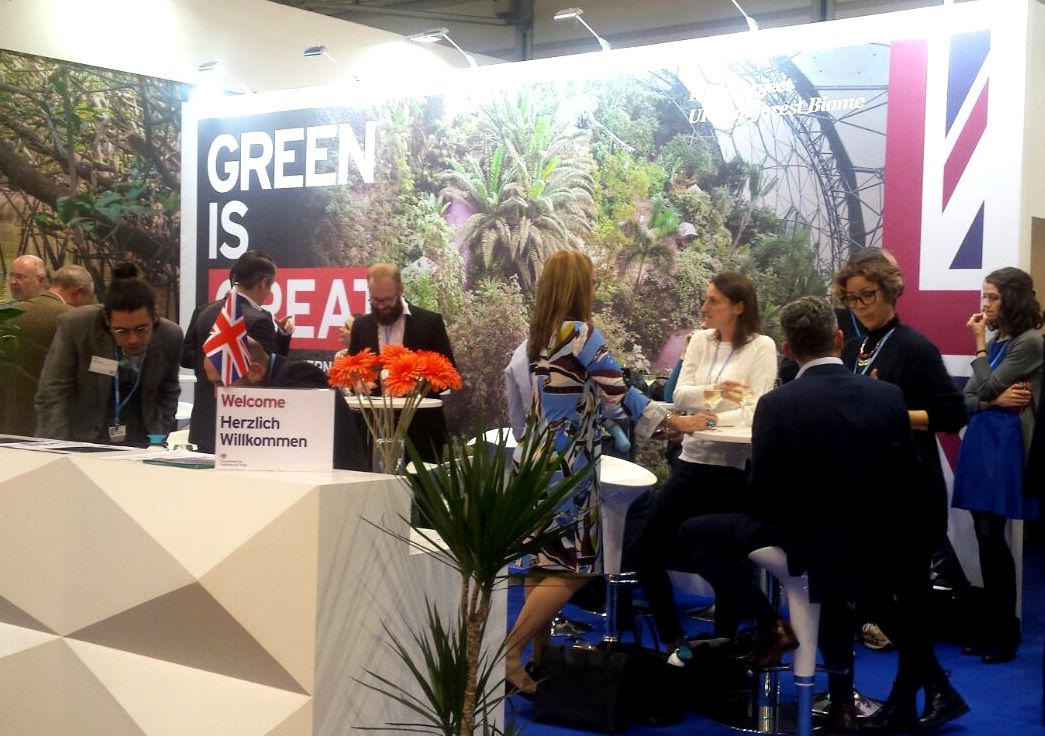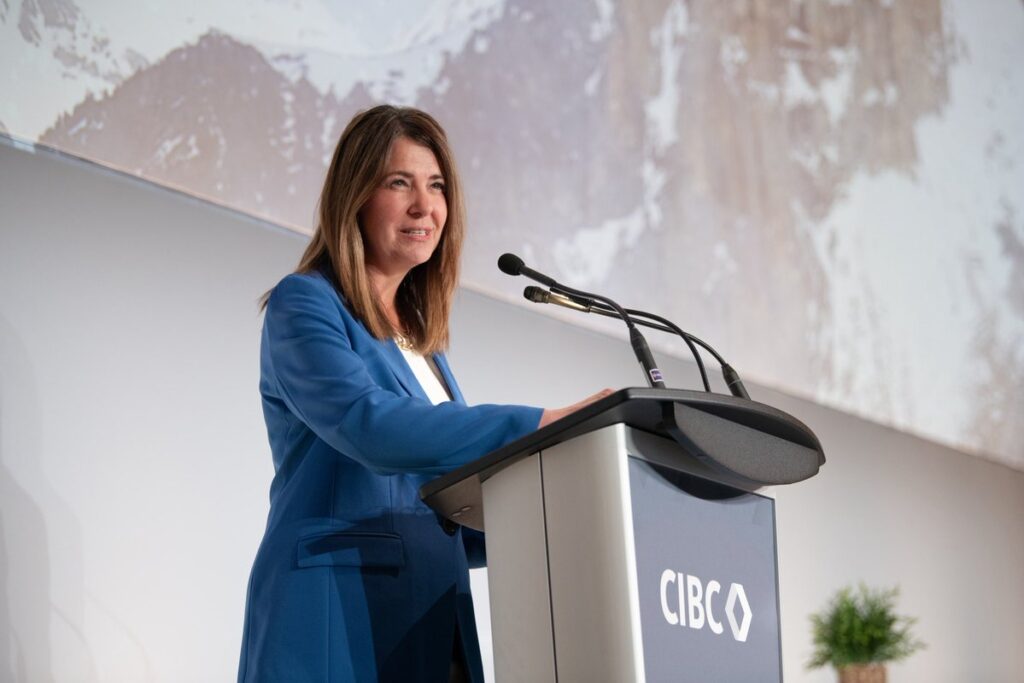BONN, GERMANY – The UK government has been accused of “double standards” as it poses as a global leader while maintaining a cosy relationship with the fossil fuel industry at the international climate talks in Bonn this week.
Inside the conference centre in Bonn, where around 30,000 participants have gathered for the annual climate negotiations, the UK government has given a global and pro-business twist to its promotional pavilion. Run by the Department for International Trade, it boasts of the “experience and expertise” of UK and its private sector to tackle climate change.
Although of modest size compared to its German counterpart, the UK pavilion aims to showcase the UK as a climate “leader in the low carbon transition both nationally and internationally”.
The free brochure boasts the UK’s “commercial strengths” and claims it is “ideally placed” to help other countries “take forward action on climate commitments” and meet their emission reduction targets, also known as Nationally Determined Contributions (NDCs).
The programme of events also emphasises the UK’s global agenda by promoting the role of the private sector in partnerships with Brazil and China on green finance and support for initiatives launched in Africa.
But while the UK is keen to tell others how to reduce emissions and increase ambition for climate action, its domestic record suggests it’s not ready to break its cosy relationship with the fossil fuel industry just yet.
Barclays bank, which has been targeted by campaigners for backing fracking companies and investing in fossil fuel projects such as the Dakota Access Pipeline and the Cerrejón coal mine in Colombia, is the official partner of the UK pavilion at COP23 and is co-hosting a drinks reception on green finance.
The bank currently owns about 78 per cent of the fracking company Third Energy which has a licence to frack at the Kirby Misperton site in North Yorkshire. In May, Barclays announced that it would sell its stake in Third Energy without changing its overall stance on fracking. So far it has not acted on its decision.
Pascoe Sabido, from Corporate European Observatory told DeSmog UK that Barclays sponsorship of the pavilion showed the UK government “is more concerned with protecting and promoting British economic interests than fighting climate change”. He added that giving the bank such a prominent position was “pure greenwashing” and allowed Barclays “to masquerade as part of the solution” to climate change.
Christian Aid’s head of policy, Dr Alison Doig, agreed that Barclays was keen to present “its green credentials to the world” but pointed out it was also one of five banks that provided $590m (£447m) to fund a coal burning power plant in southern Zambia.
A spokeswoman for the UK pavilion said the partnership with Barclays was part of an event on green finance, “an area in which Barclays is very active”.
While the UK government is using its pavilion at COP to bolster the role of businesses in providing solutions to climate change, it continues to spend hundreds of millions of pounds of taxpayers money on financing private carbon intensive projects abroad to boost UK exports.
The latest such project is a $2bn (£1.52bn) loan to Saudi Arabia’s national oil company Aramco. The UK also hopes Aramco will list on the London Stock Exchange although the Treasury has denied the loan is linked to a potential listing.
At home, the UK continues to champion fossil fuels. In the Spring budget, Chancellor Philip Hammond announced more financial help for the oil and gas industry in the North Sea on top of £2.3bn the industry received in subsidies over the past three years.
And the UK government is reportedly on the verge of giving the final sign-off for fracking to take place in the UK for the first time in six years, continuing its commitment to the burgeoning fossil fuel industry.
Speaking in a side event at COP23, Becky Daniels, a mother of three and an anti-fracking activist, described her community’s battle against fracking company Cuadrilla at the Preston New Road site between Blackpool and Preston in Lancashire.
Daniels said her activism started because she was “worried about her children’s future”.
Speaking to DeSmog UK, Daniels said she was “disappointed” and “upset” about what she found at the UK pavilion. “I wanted to speak to someone there about issues around fracking in the UK, but nobody was there to give me an answer,” she said.
Lise Masson, an anti-fracking activist and a member of the UK Youth Climate Coalition described the “inconsistency” between the UK “celebrating its ‘climate leadership’ at COP23 while paving the way for fracking companies at home” as “appalling”.
‘‘If the UK is real about tackling the climate crisis, they need to listen to those [community] voices and step up their ambition, at COP, and in their domestic policies,” she said.
Camilla Born, from think tank E3G, told DeSmog UK that while the UK had come a long way in reducing its emissions, it now needed to step up again to respond to the urgency of the climate crisis.
The UK “invested in the long-term and made wise decisions years ago which see us getting off coal today,” she said. “But as climate action gets more urgent and the quest to net zero emissions becomes more possible, the UK won’t be able to maintain its double standards.”
“Technology that harness the wind and the sun are a much safer bet than fracking fool’s gold”.
Main image credit: Chloe Farand
Subscribe to our newsletter
Stay up to date with DeSmog news and alerts






